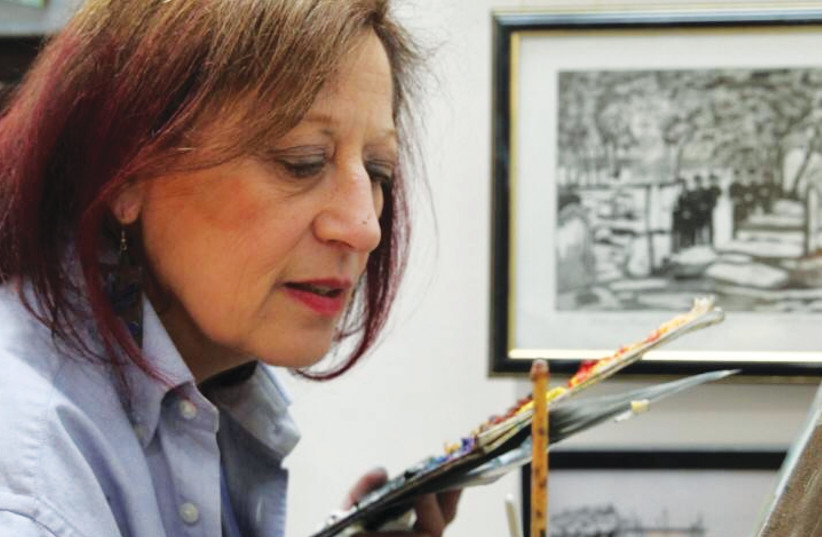A group exhibition, titled Behind the Mask, was intended to be part of the Jerusalem Biennale, which was scheduled to open on November 9 but was postponed to March 11, 2024. Until then, the exhibition is showing at the Museum Casale Ebraica in Torino, Italy.
Behind the Mask presents interpretations and possible contexts for the Book of Esther, enabling us to feel, with vivid passion, the profound relevance of this ancient book to our history as a nation and as women today.
Among the 24 books of the Hebrew Bible, only two are named after women: Ruth and Esther. In the Book of Esther, we uncover the heroic metamorphosis of the heroine, who changes her nation’s destiny by becoming conscious of her religious legacy.
Israeli and Italian artists, who have interpreted the themes and narratives of the Purim story in a variety of styles, created the works chosen for this exhibition. The practice of disguise, or hidden identity, has been given spiritual significance over the generations and emerges in many cultures.
The selected works also reveal a unique curatorial interpretation of Esther’s story, the meaning inherent in it, and the symbolism surrounding it. This creates a broader elucidation of Esther that includes feminist, sociological, and historical perspectives.
Exploring narratives through art
The exhibition’s curators, Ermanno Tedeschi and Vera Pilpoul, chose works that explore ideas and narratives included in the Book of Esther, such as wearing masks and hiding our identity, a ritual that was given spiritual meanings throughout the years.
British-Jewish artist Beverley Jane Stewart, who participates in the exhibition, hopes that her body of works, titled Behind the Veil, will make viewers realize how relevant the Book of Esther is to our lives today, to our collective history, and especially to women. “It is series of artwork of both etchings and drawings portraying women while addressing questions about feminism, gender, power, and especially focusing on the lack of consideration for women’s rights and needs by imposing inequality due to gender,” she said.

Expressing herself through line, texture, and shades, the artist probes the frequent concealment of women’s power, needs, and frustrations. “No woman should be inhibited by fear or shame, but unfortunately, globally, women still need to fight for equality and respect,” she said. Although the situation may seem different in the Western world, women are still punished in the religious Jewish world due the weaknesses of men, she added.
“Women are not permitted to participate in the service but are hidden behind a curtain or veil. As a traditional Jew living in the Diaspora, the synagogue for me is a very special place where my Jewish identity is embraced. I very much enjoy watching the grandeur of the service, embracing the beauty of the Aron Kodesh [Holy Ark] with the mellow lights cushioning the Sefer Torah, the hum of activity, the singing, the excitement of the congregation harmonizing in prayer,” Stewart said, adding that being placed behind a curtain or veil limits the sound and vision.
“For me, this is a restriction of human rights, destroying a beauty I am not able to view.”
“Exploring female heroism in the Bible, I focused on Esther’s bravery,” the artist explained. “It was her female intuition that saved the Jews from destruction.” As for Stewart’s decision to include the Purim scene in the Venice Festival, “Venice is famous for the masquerade of the mask, where identities are concealed, but it is also the first place where a Jewish ghetto was established.”
“A drama of mystery, disguise, and division, hidden within the soft echoes of rippling waters lapping against the sides of the Venetian canals, everyone is invited to dress up and express with exuberance an appreciation of the freedom achieved by Esther’s courage. But,” Stewart lamented, “though it is a woman that saved the nation in this story, women are still not allowed to read the Megillah out loud when men are present.”
The exhibition Behind the Veil is showing at the Museum Casale Ebraica in Torino until December 3.
